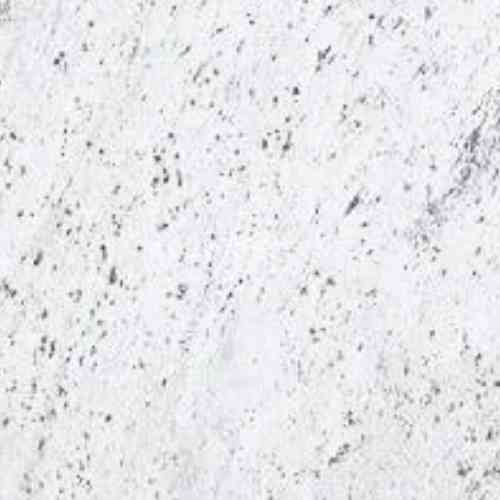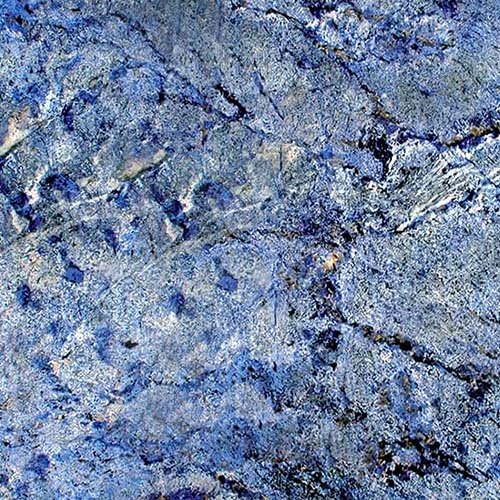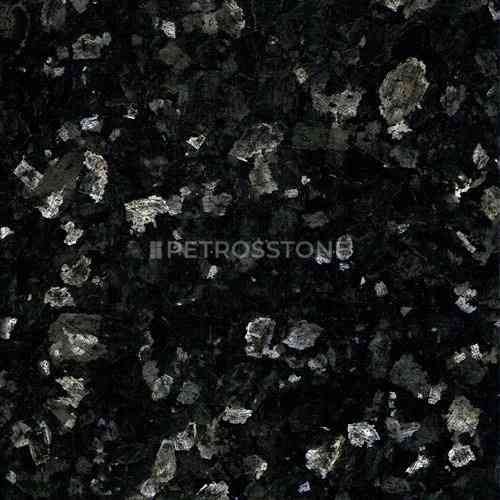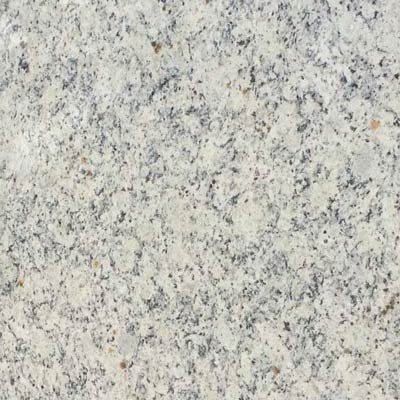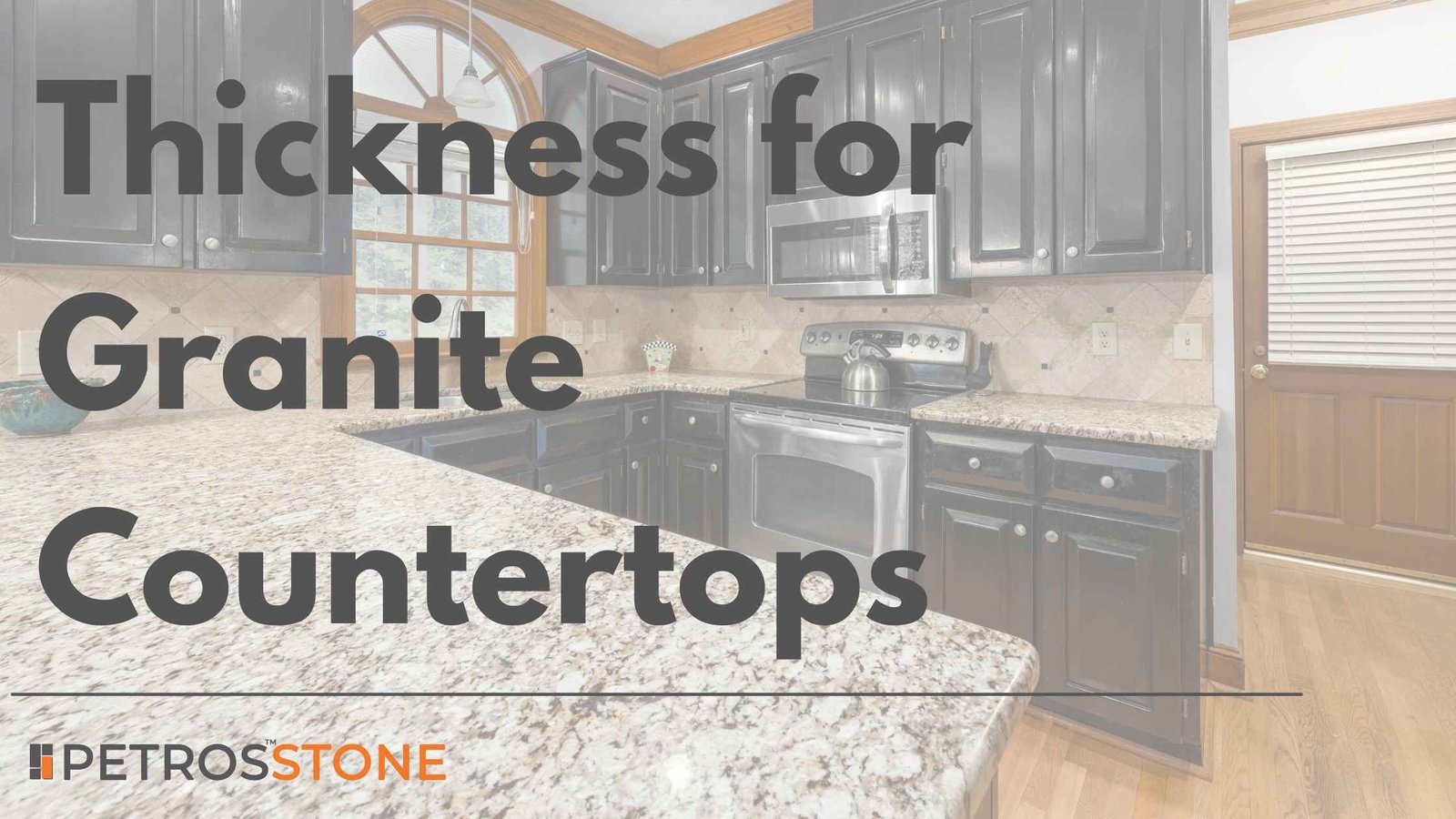
Granite countertops are usually either 2cm (approximately 3/4”) or 3cm (approximately 1 ¼”) thick. Based on the strength, aesthetics, and properties of the granite itself, the right thickness of granite countertops can vary. In this article, we will help you figure out the right thickness of granite countertops for you.
The thickness determines the countertop’s strength, visual impact, and cost.
Choosing the right thickness requires understanding the range of available options and their suitability for different applications. This guide explores everything you need to know about the thickness of granite countertops, helping you make an informed decision for your home or commercial space.

- Granite Countertop Thicknesses
- Standard Granite Thicknesses
- Summary of 2cm vs 3cm thick countertops
- Choosing Granite Thickness for Custom Designs and Special Features
- How to Decide Your Granite Countertop Thickness
- Granite Countertops 2cm vs 3cm Thick: Comparison
- Which are the Most Popular Granite Countertop Thicknesses?
- Why Thickness of Granite Countertops is Important?
- 4-Inch-Thick Granite Slabs: Are They Practical?
- How Thin Can a Granite Slab Be?
- What is the Maximum Thickness of a Granite countertop?
- Granite Thickness for Each Design Style
- Granite Thickness for Minimalist and Contemporary Looks
- Granite Thickness for Luxurious and Opulent Styles
- Conclusion
Granite Countertop Thicknesses
Granite countertops are available in various thicknesses to meet diverse needs. These include standard options and custom variations to suit specific designs or functional requirements.
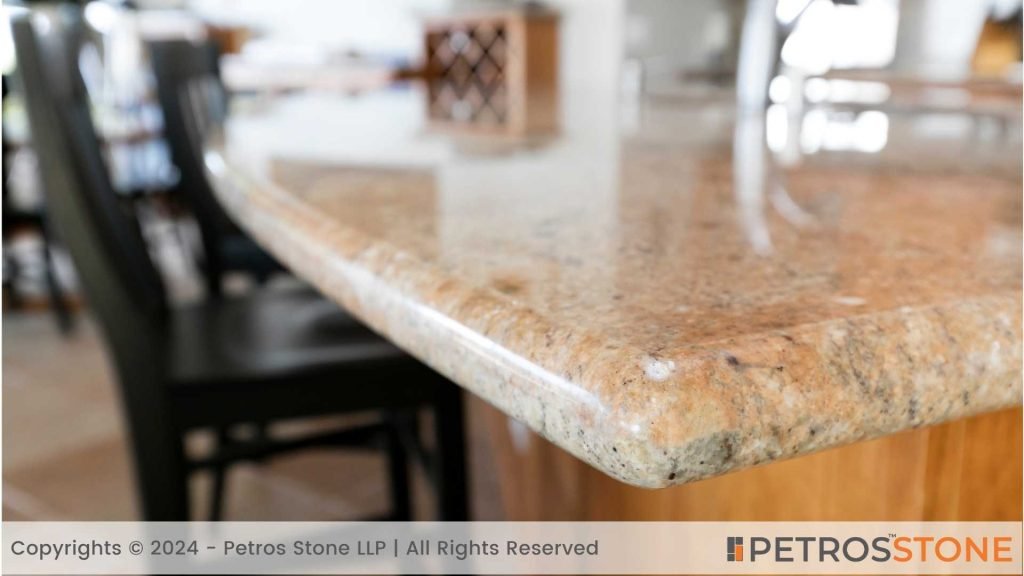
Standard Granite Thicknesses
The thickness for standard granite are as followings:
| Granite Thickness | Millimeters (mm) | Centimeters (cm) | Inches |
| Thin (1.5cm) | 15mm | 1.5cm | ∼5/8 inch |
| Standard (2cm) | 20mm | 2cm | ∼3/4 inch |
| Premium (3cm) | 30mm | 3cm | ∼1 1/4 inch |
| Extra Thick (4cm) | 40mm | 4cm | ∼1 1/2 inch |
| Custom (varies) | Varies | Varies | Varies |
1.5cm (15mm) Granite Slabs
• Inches: Approximately 5/8 inch.
• Applications: Commonly used for vertical surfaces like backsplashes, wall cladding, or lightweight decorative purposes.
• Characteristics: Requires plywood or steel reinforcement for structural support due to its fragility.
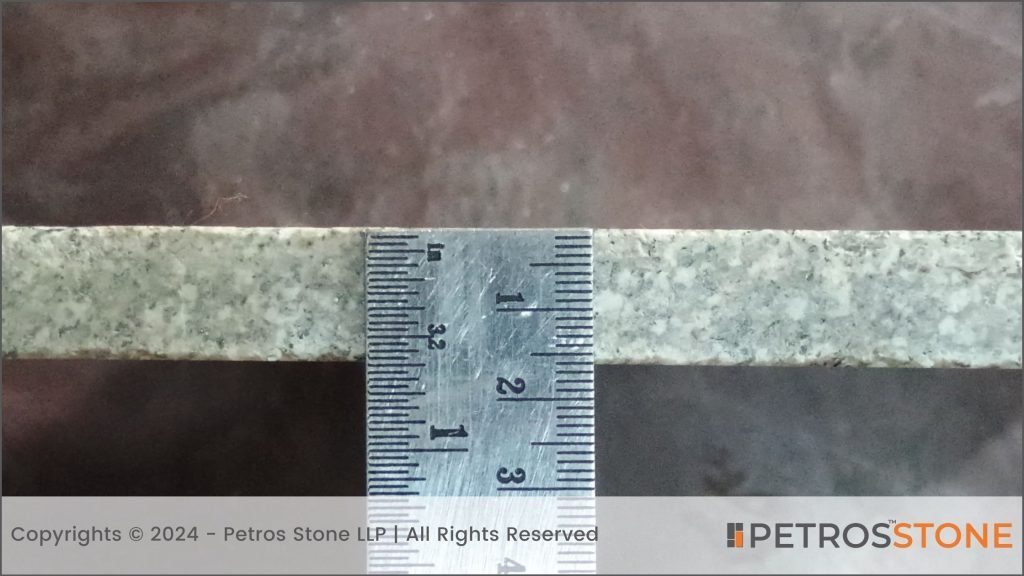
2cm (20mm) Granite Slabs
• Inches: Approximately 3/4 inch.
• Applications: Ideal for budget-conscious projects and bathroom vanities.
• Characteristics: Often laminated to mimic thicker slabs for a polished look. Lightweight but may require backing for added durability.
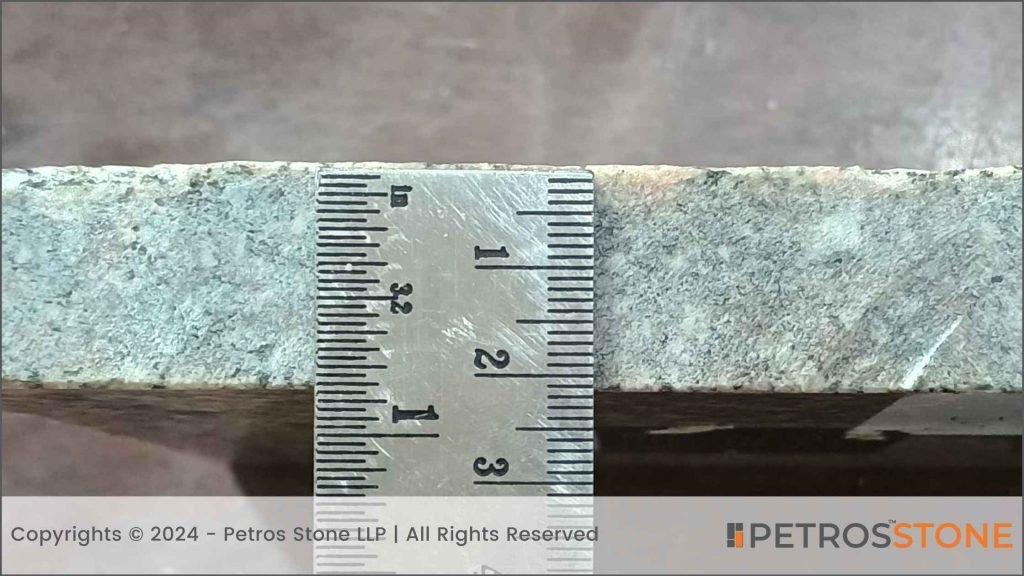
3cm (30mm) Granite Slabs
• Inches: Approximately 1 1/4 inch.
• Applications: The gold standard for kitchen countertops, offering unmatched strength and aesthetic appeal.
• Characteristics: Requires no additional reinforcement, making it a preferred choice for high-traffic areas.
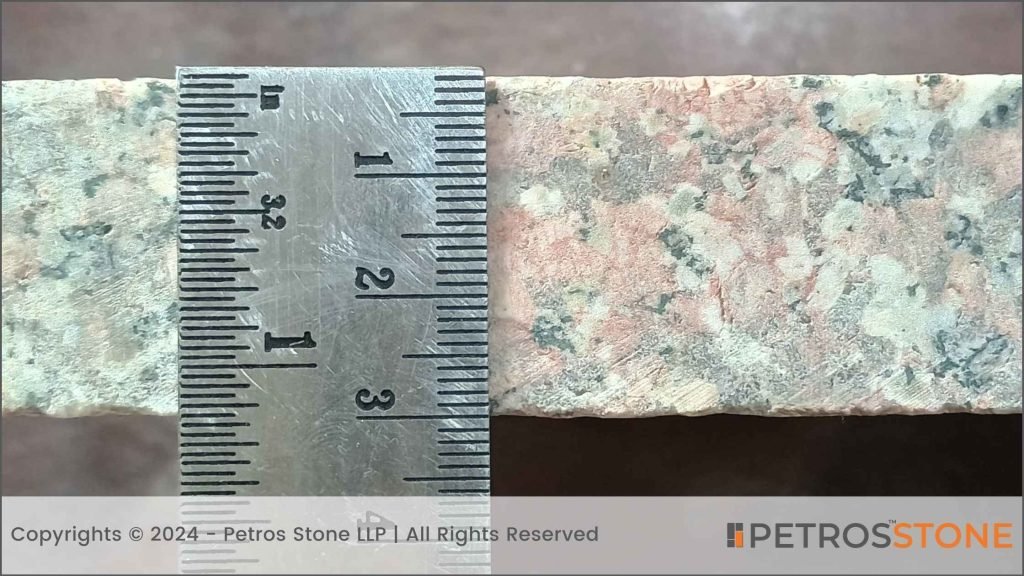
Note: 30 mm thick slabs of granite are usually 33% more expensive than 20mm thick slabs of granite.
4cm (40mm) Granite Slabs
• Inches: Approximately 1 1/2 inch.
• Applications: A premium option for luxurious kitchen islands or bold, statement designs.
• Characteristics: Heavy and costly, but exudes a striking visual presence.
Custom Granite Slabs
• Inches: Can range from ultra-thin (less than 1cm) to ultra-thick (over 6cm or 2 3/8 inches).
• Applications: Used for specialized designs like sculptural countertops, custom furniture inlays, or large architectural projects.
Summary of 2cm vs 3cm thick countertops
| Aspect | 2cm Countertop | 3cm Countertop |
| Weight per Sqft | 5 – 5.5 kg | 7.5 – 8.25 kg |
| Weight for 20 Sqft (10ft x 2ft) | 100 kg (220 lbs) | 150 kg (330 lbs) |
| Handling and Installation | Easier to handle and install | More difficult to handle, more expensive due to weight |
| Appearance | Thinner look | Slightly thicker, more substantial look |
| Cost (Material Only) | $6.5/sqft (Galaxy Black) | $8.33/sqft (Galaxy Black) |
| Cost Difference (Material) | Base price | 30-35% higher than 2cm |
Best Granite Thickness for Each Use
The choice of granite thickness is influenced by three primary factors: cost, functional requirements, and aesthetic goals. Each thickness serves a distinct purpose, making it essential to evaluate the intended use and the visual appeal desired for a particular space. Below, we delve into how granite thickness varies based on these factors, with practical examples to illustrate their application.

Best Granite Thickness for Kitchen Countertops
• Common Choice: A 3cm (1 1/4-inch) granite slab is ideal for kitchen countertops due to its robust strength and durability.
• Example: A busy family kitchen with heavy cookware benefits from a 3cm slab as it resists cracking and can support the weight of appliances, heavy chopping, and so on.
• Alternative: For luxury kitchens, a 4cm (1 1/2-inch) slab adds a dramatic touch, perfect for open layouts where the countertop becomes a focal point.
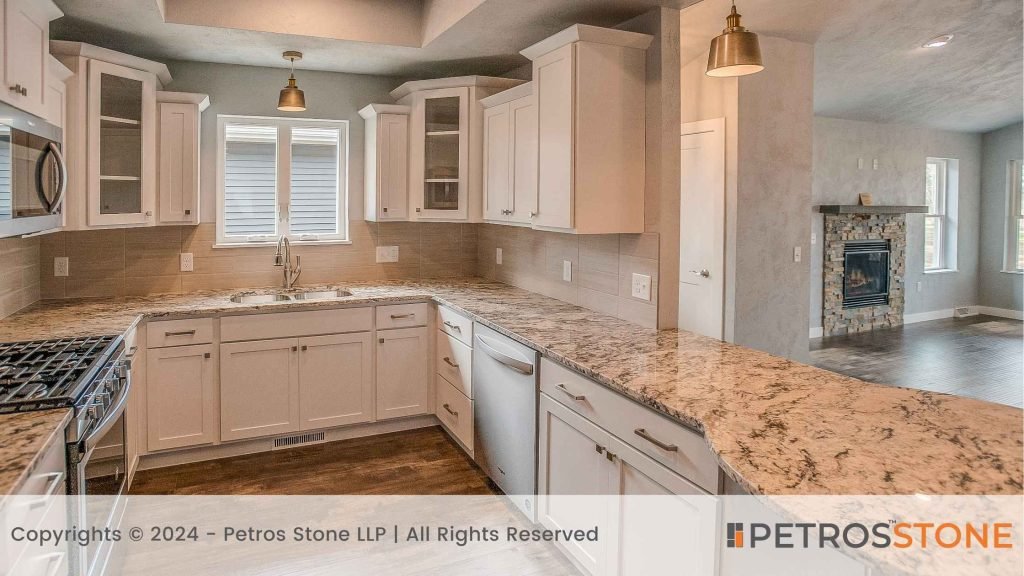
Best Granite Thickness for Bathroom Vanities
• Standard Choice: A 2cm (3/4 -inch) slab is often used for bathroom vanities since these surfaces endure less wear and tear.
• Example: A compact guest bathroom with a sleek vanity benefits from a thinner, lighter 2cm slab, simplifying installation without compromising style.

Best Granite Thickness for Backsplashes and Wall Cladding
• Standard Choice: Thin 1.5cm (5/8-inch) slabs are lightweight and cost-effective for vertical surfaces.
• Example: A 1.5cm (5/8 inch) granite slab for a kitchen backsplash enhances the space’s elegance while being easy to install and requiring minimal structural support, being much lighter.
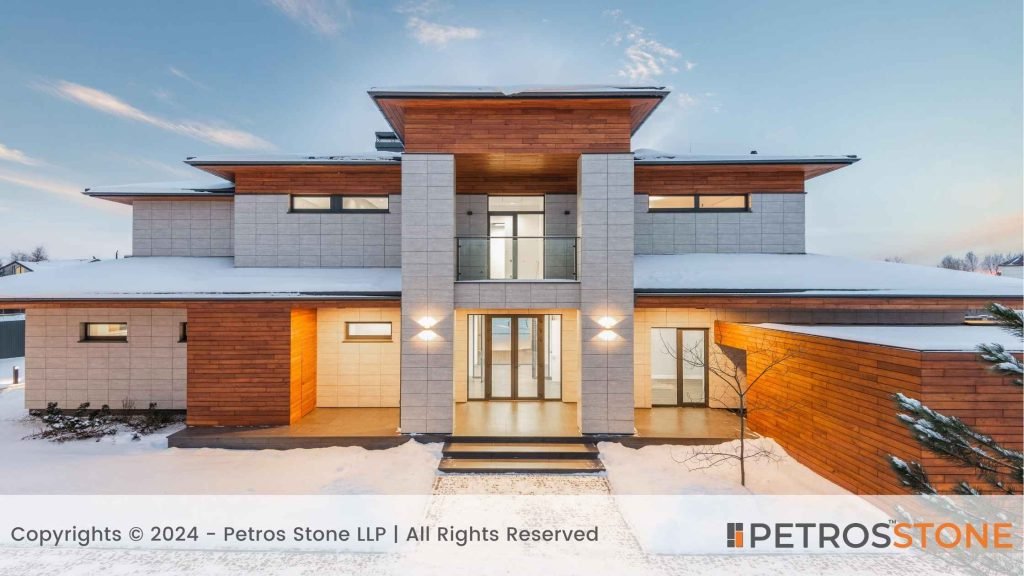
Choosing Granite Thickness for Custom Designs and Special Features
• Common Choice: Custom thicknesses ranging from ultra-thin (1cm) to ultra-thick (6cm or more) cater to unique design needs.
• Example: A designer creates a large kitchen island with a dramatic 6cm granite slab, combining functionality with a bold, luxurious aesthetic.
How to Make Granite Countertops Look 2-4 Inches Thick?
If you want your granite countertops to appear thicker without actually increasing their weight and cost, there are several techniques you can use. Below are some popular methods, along with explanations of the process:
1. Mitered Edge
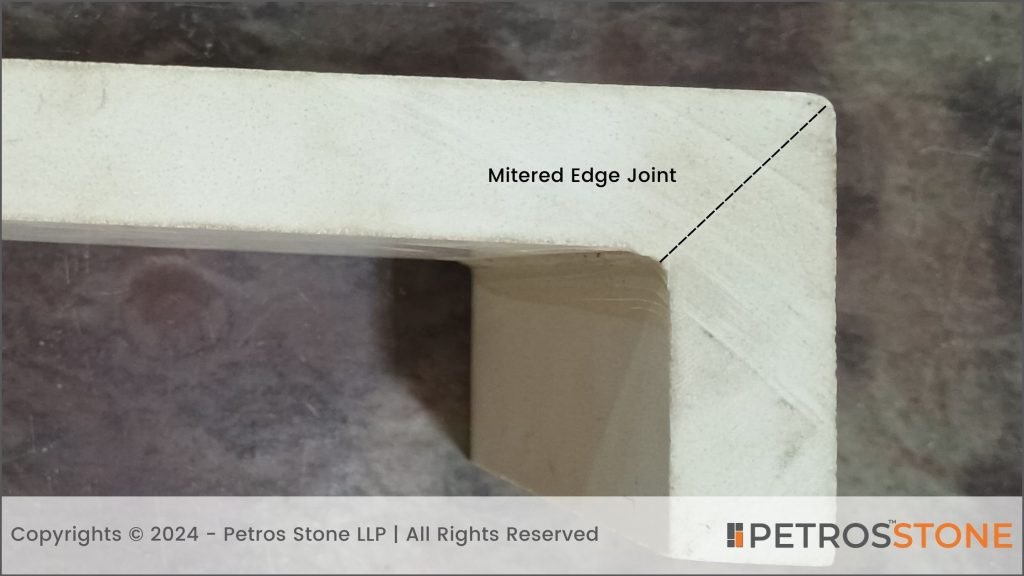
Process:
• A mitered edge involves cutting the granite at a 45-degree angle along the edges and then joining it seamlessly with an additional strip of granite.
• This creates the illusion of a thicker slab.
• The same is polished to match the surface, making it appear as a single, solid piece.
Advantages:
• Offers a sleek, modern look.
• Customizable for various thicknesses.
2. Laminated Edge
Process:
• A second layer of granite is attached to the edge of the countertop.
• The layers are glued and polished to create a seamless look.
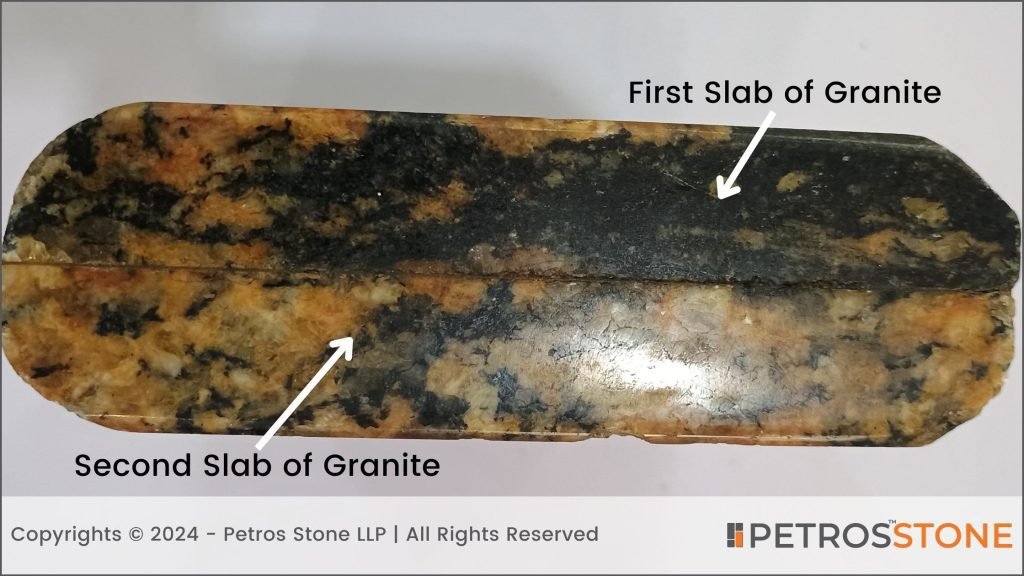
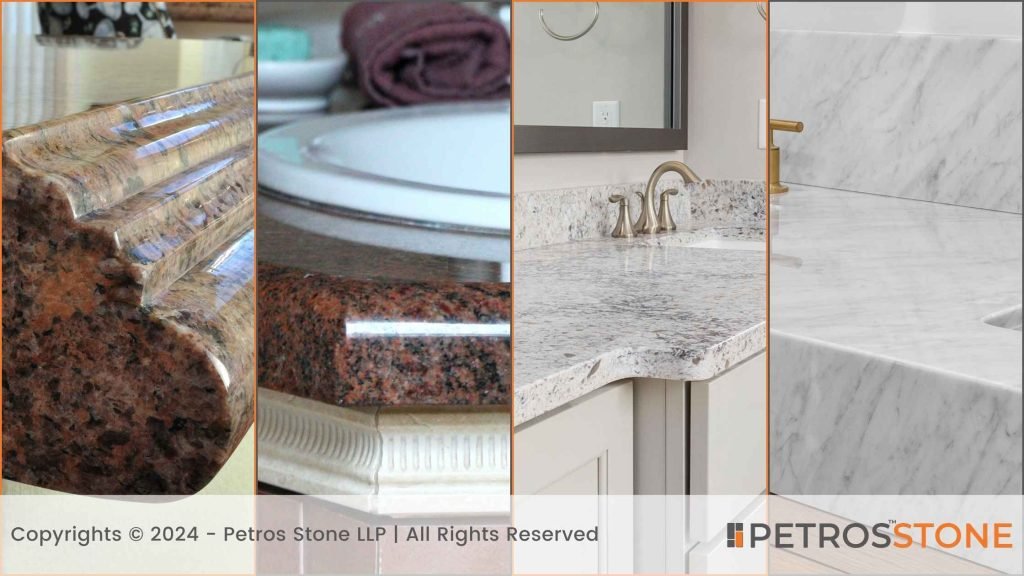
Advantages:
• Adds depth and design options.
• Works well for traditional or ornate styles.

3. Built-Up Substrate
Process:
• A plywood or MDF base is added beneath the granite slab.
• The edge of the granite is extended downwards to cover the substrate, giving the illusion of a thicker countertop.
• Often paired with laminated or mitered edges for a polished look.
Advantages:
• Lightweight and cost-effective.
• Easy to install and customize.
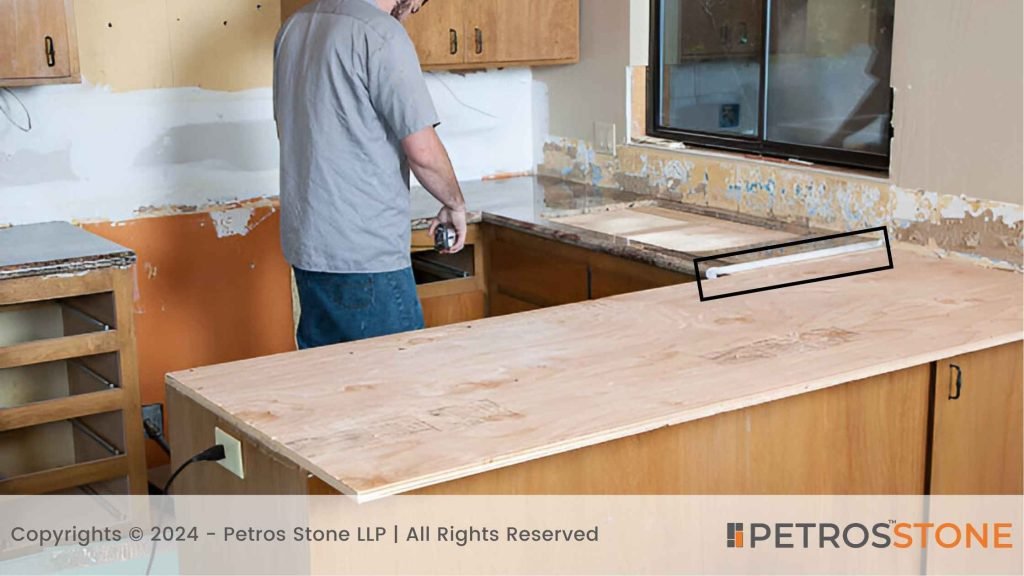
4. Waterfall Edge
Process:
• The granite is extended vertically down the sides of the countertop up to the floor, creating a continuous flow that gives the impression of thickness and luxury.
• Commonly used on kitchen islands and open counters.
Advantages:
• Adds a dramatic, contemporary touch.
• Increases the visual mass of the countertop.
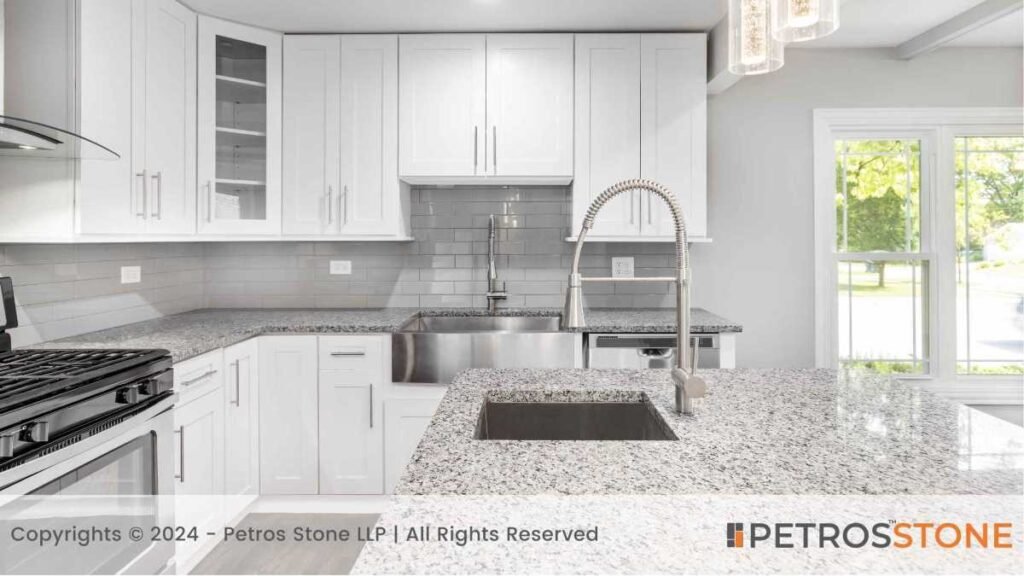
What is the Right Thickness of Granite Countertops?
The thickness of a granite countertop isn’t a one-size-fits-all decision. The perfect slab depends on several factors, including the intended use, design preferences, and budget.
1. Functional Requirements
• Kitchen Countertops: A 3cm thickness is ideal for its durability and resistance to wear and tear.
• Bathroom Vanities: 2cm slabs suffice due to lighter usage.
• Backsplashes: Thin slabs (1.5cm) work well as they are not subject to heavy stress.
2. Budget
• Thinner granite slabs, such as 2cm, are more economical but may require reinforcement, adding to the overall cost.
• Meanwhile, thicker options like 3cm or custom slabs are pricier upfront due to higher material and installation expenses.
3. Granite Countertops – 2cm vs 3cm thickness
| Aspect | 2cm Thick Granite | 3cm Thick Granite |
| Material Cost (per square foot) | Lower price due to thinner slabs | Higher price due to thicker slabs |
| Installation Cost | Usually lower, but may require additional support | Higher cost but easier to install with no extra support needed |
| Weight | Lighter and easier to handle | Heavier, may require additional support |
| Durability | Slightly less durable, more prone to cracking or chipping | More durable and resistant to damage |
| Aesthetic Appeal | Thinner appearance, may not have the bold look | Thicker appearance, offers a more dramatic and luxurious look |
| Long-Term Maintenance | May need more care due to higher risk of chipping or cracking | Lower maintenance with better durability |
| Overall Cost (per square foot) | Less expensive, typically 10-20% cheaper | More expensive, typically 10-20% more expensive |
4. Design Preferences
• Modern Minimalism: Thin slabs (1.5cm to 2cm) are perfect for sleek, contemporary interiors.
• Luxurious Grandeur: Thick slabs (3cm or more) create a bold and opulent statement.
• Custom Aesthetics: Laminated edges or drop-edge profiles can mimic greater thickness while saving weight and cost.
How to Decide Your Granite Countertop Thickness
Deciding on the thickness of your granite countertop can feel tricky. But don’t worry, I’ll break it down for you step by step.
First, let’s talk about your space. Look at your cabinets. Are they strong enough to hold a heavy countertop? If your cabinets are older or made from lighter materials, you might want to choose a thinner slab. This will keep everything safer and help avoid any accidents.
Granite Countertops 2cm vs 3cm Thick: Comparison
| Aspect | 2cm Countertop | 3cm Countertop | 5cm Countertop |
| Weight per Sqft | 5 – 5.5 kg | 7.5 – 8.25 kg | Heavier than 3cm, specific weight varies |
| Weight for 20 Sqft (10ft x 2ft) | 100 kg (220 lbs) | 150 kg (330 lbs) | Significantly heavier than 3cm |
| Handling and Installation | Easier to handle and install | More difficult to handle, more expensive due to weight | Most challenging to handle, very expensive |
| Appearance | Thinner look | Slightly thicker, more substantial look | Much thicker and, very bold appearance |
| Cost (Material Only) | $6.5/sqft (Galaxy Black) | $8.33/sqft (Galaxy Black) | $12.5/sqft, varies by granite type |
| Cost Difference (Material) | Base price | 30-35% higher than 2cm | Significantly higher than both 2cm and 3cm |
Consider your budget. How much are you willing to spend? Remember to include the cost of the granite itself, plus any extra for reinforcement and installation. Get some quotes from local contractors. This can help you see what thickness fits your wallet.
• Material Cost: Thicker granite slabs are more expensive due to the additional raw material required.
• Installation Costs: Heavier slabs demand specialized labor and equipment, increasing overall expenses.
• Reinforcement Costs: These are necessary for thinner slabs, which can offset their initial affordability.
So, look at your space, consider how you use your countertops, and check your budget. This will help you make a wise choice about your granite thickness.
Which are the Most Popular Granite Countertop Thicknesses?
• Most Popular: 3cm thickness for its balance of durability and style.
• High-End Options: 3cm slabs for kitchens aiming to make a luxurious statement.
• 2cm granite slabs are preferred for lighter weight and easier installation.
• Thin 1.5cm slabs are cost-effective and easy to handle for vertical surfaces.
• Ultra-thick slabs (4cm to 6cm) are used for unique elements like sculptural kitchen islands or fireplace mantels.
Why Thickness of Granite Countertops is Important?
• Strength: Thicker countertops are less likely to chip or crack, especially in busy kitchens with heavy activity.
• Ease of Installation: Thicker granite sits securely on cabinets, while thinner slabs may require additional support.
• Aesthetic Appeal: Thicker countertops offer a bold and dramatic look, enhancing the overall design of your kitchen or bathroom.
• Maintenance: Thicker granite provides a larger working surface, which can be easier to clean and maintain.
• Cost: Thicker slabs are more expensive but often considered a worthwhile investment due to their durability and visual impact
• Design Harmony: Choosing the right thickness ensures the countertops align with your desired style, whether modern or traditional.
Make sure to pick the right thickness for your needs. The right choice will help create a beautiful and functional space.
4-Inch-Thick Granite Slabs: Are They Practical?
• No, 4-inch-thick granite slabs are not practical for countertops.
• A 4-inch slab, equivalent to approximately 10cm, is too thick and heavy, making it impractical for standard countertop installations.
• These slabs are typically used for applications like gravestones and tombstones, where such thickness provides the necessary durability and visual impact.
• However, many countertops may appear to be 4 inches thick.
• This effect is achieved through techniques such as 45-degree mitered edges, where thinner slabs are joined seamlessly to give the illusion of greater thickness – as explained here.
• These methods provide the desired aesthetic without the challenges associated with using an actual 4-inch granite slab.
How Thin Can a Granite Slab Be?
• Granite slabs can be as thin as 1 centimeter (approximately 0.4 inches).
• Thin granite is commonly used for lightweight applications such as wall cladding, furniture tops, or decorative accents.
• However, thin slabs are less durable and may require additional support, such as a substrate, to prevent cracking or breakage.
• They are not typically recommended for heavy-use surfaces like kitchen countertops.
• Despite their limitations, thin granite slabs are an excellent choice for reducing weight and cost while still enjoying the natural beauty of granite in less demanding settings.
• Ensure proper installation to maximize durability.
What is the Maximum Thickness of a Granite countertop?
• Granite countertops are most commonly available in a thickness of 3cm, which is considered the standard due to their durability, ease of installation, and wide availability.
• For custom projects or specific design preferences, a 4cm thickness can also be chosen, offering a slightly more substantial appearance.
• However, granite slabs thicker than 4cm are generally not practical for countertop applications due to their weight and cost.
• For other uses beyond countertops, such as benches, gravestones, or architectural features, granite slabs can be much thicker, ranging from 10cm to 20cm.
• These thicker slabs are suitable for these applications as they provide the required strength and aesthetic appeal for heavy-duty or decorative purposes.
Granite Thickness for Each Design Style
Granite thickness significantly affects the visual impact of a space. Depending on the desired style, from sleek and modern to bold and grandiose, the thickness can transform the appearance of a countertop.
Granite Thickness for Minimalist and Contemporary Looks
• Preferred Thickness: Thin slabs, 1.5cm to 2cm, create a clean, streamlined look.
• Example: A modern apartment with open shelving and minimalist decor benefits from a 1.5cm slab, giving the kitchen a lightweight and chic aesthetic.
Granite Thickness for Luxurious and Opulent Styles
• Preferred Thickness: Thicker slabs, 3cm to 4cm, deliver depth and grandeur.
• Example: A high-end home with a statement kitchen island finished in a 3cm granite slab but making it look 5cm or more using mitre joints exudes sophistication and luxury, enhancing the space’s overall appeal.
Conclusion
Granite thickness is a crucial factor in determining your countertops’ functionality, cost, and aesthetic. Whether you choose the standard 3cm thickness or something thinner or thicker, understanding your needs will help you make the perfect choice for your space.
If you are still confused about the right thickness for your countertop, feel free to get in touch with us here at Petros®. Our team of stone experts will not only help you with the right countertop thickness but also help you through the entire project planning and execution.
Feel free to get in touch for a free consultation, quote, and get a detailed understanding from our experts here at Petros®. Visit https://petrosstone.com/ or call +91-8446360361 and WhatsApp

Hi, I’m Khushbu,
With years of experience in the field of architecture, I’ve developed a deep appreciation for the impact of natural materials in design. At Petros® Stone, I write to share my perspective on how stone can modernize spaces with beauty, function, and timelessness.
Brown Granite
White Galaxy Granite
Blue Bahia Granite
Silver Cloud Granite
Black Pearl Granite
Dallas White Granite


